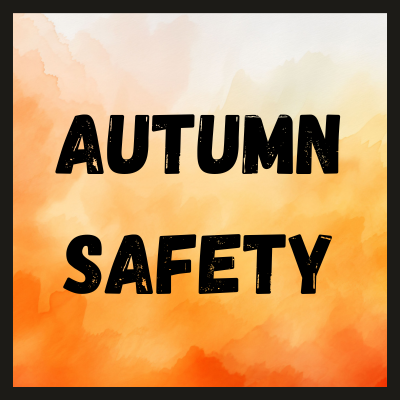
News
Tips for a safe transition from summer to fall
August 26, 2025
Content provided by TriHealth
With shorter days, cooler temperatures, and falling debris (think, wet leaves) fall brings an increased risk of accidents, including falls. Seasonal changes make it important to update both your home and habits to stay safe and independent.
Small steps such as installing extra lighting, clearing clutter, wearing supportive shoes, and keeping strong increase safety and comfort so you can enjoy all the beauty and outdoor fun that accompanies autumn. Read on to learn helpful tips.
Be visible and tidy.
- Add bright LED bulbs in hallways, staircases and entryways.
- Use night lights and motion sensors in hallways or rooms you walk through after dark.
- Keep indoor and outdoor walkways clear – watch for hoses, toys, loose rugs, or wet leaves.
Why is this important? To be able to see clearly in darker months.
Strengthen your base.
- Wear supportive shoes with non-slip soles – even indoors.
- If needed, use a cane or walker with proper tips for extra balance.
- Keep shoe surfaces dry before entering your home.
Why is this important? To avoid slipping on clutter or leaves.
Add supports.
- Securely install handrails on both sides of stairs and entry areas.
- Add grab bars in bathrooms alongside toilets and in showers.
- Use non-slip mats and traction strips near doors and sinks, anywhere it may be damp.
Why is this important? To boost balance and prevent falls.
Stay warm and comfortable.
- Dress in layers. Perhaps a cozy cardigan, socks or slippers to keep out the chill. Be sure your socks or slippers have treads on the soles to avoid slipping.
- Avoid staying in damp clothes and change as soon as possible if you get wet.
Why is this important? To support warmth and safe footing.
Consider doing gentle strength and balance work.
- Try simple exercises such as chair stands, Tai Chi, heel-to-toe walking, or gentle leg lifts a few times each week.
- Take frequent breaks when doing yard work, such as raking. Don’t overdo it.
- Communicate with your doctor about medications or vision checks.
Why is this important? To maintain muscle for stability. Staying healthy helps you stay steady.
Plan and stay connected.
- Keep a flashlight, spare batteries, and your phone within easy reach—in case of emergency.
- Tell someone your plans before heading out in dark or damp conditions.
- Consider using a medical alert device that can call for help in case of an accident.
Why is this important? To prevent health factors that affect balance. To be prepared in case of emergency.

– Shane Owens, RN NR-P | EMS Coordinator
Bethesda Butler/McCullough-Hyde | Tri Health
As the EMS Coordinator, Mr. Owens is the liaison between the hospital and the Fire Departments, providing education and facilitating communication between the two.

